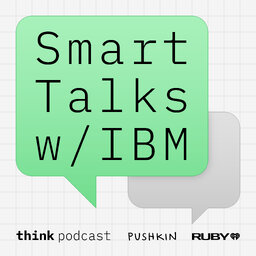How Open Source Works
Open source is a way of developing software in which the original developer makes all of the source code available for modification. Learn more about open source software in this HowStuffWorks podcast.
Learn more about your ad-choices at https://www.iheartpodcastnetwork.com
In 1 playlist(s)
TechStuff
TechStuff is getting a system update. Everything you love about TechStuff now twice the bandwidth wi…Social links
Follow podcast
Recent clips

The Story: How Science Fiction Changes the Real World
30:44

NASA and AI: Decoding Our Universe
33:53

Week in Tech: The Year of the Robot?
28:40
 TechStuff
TechStuff